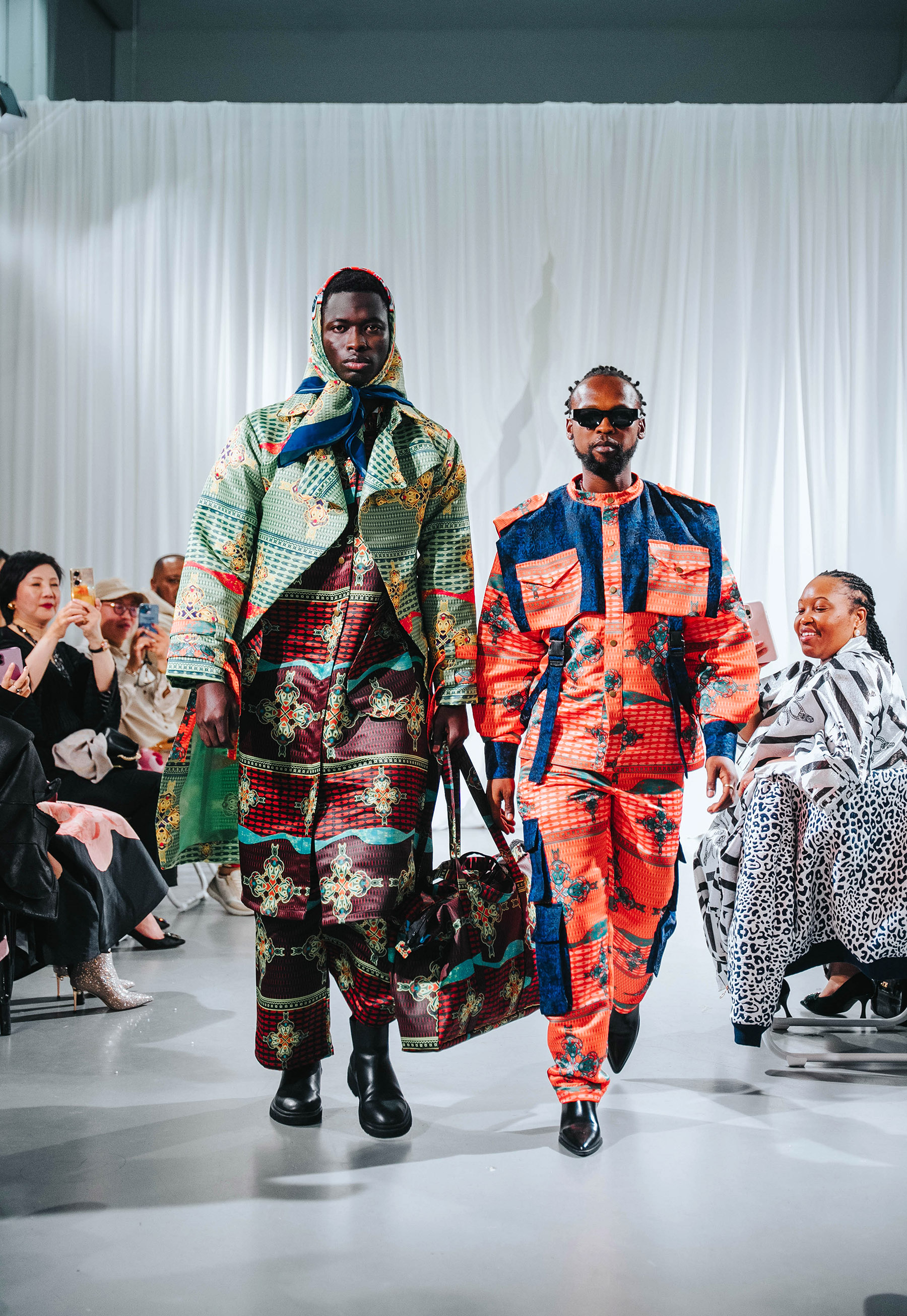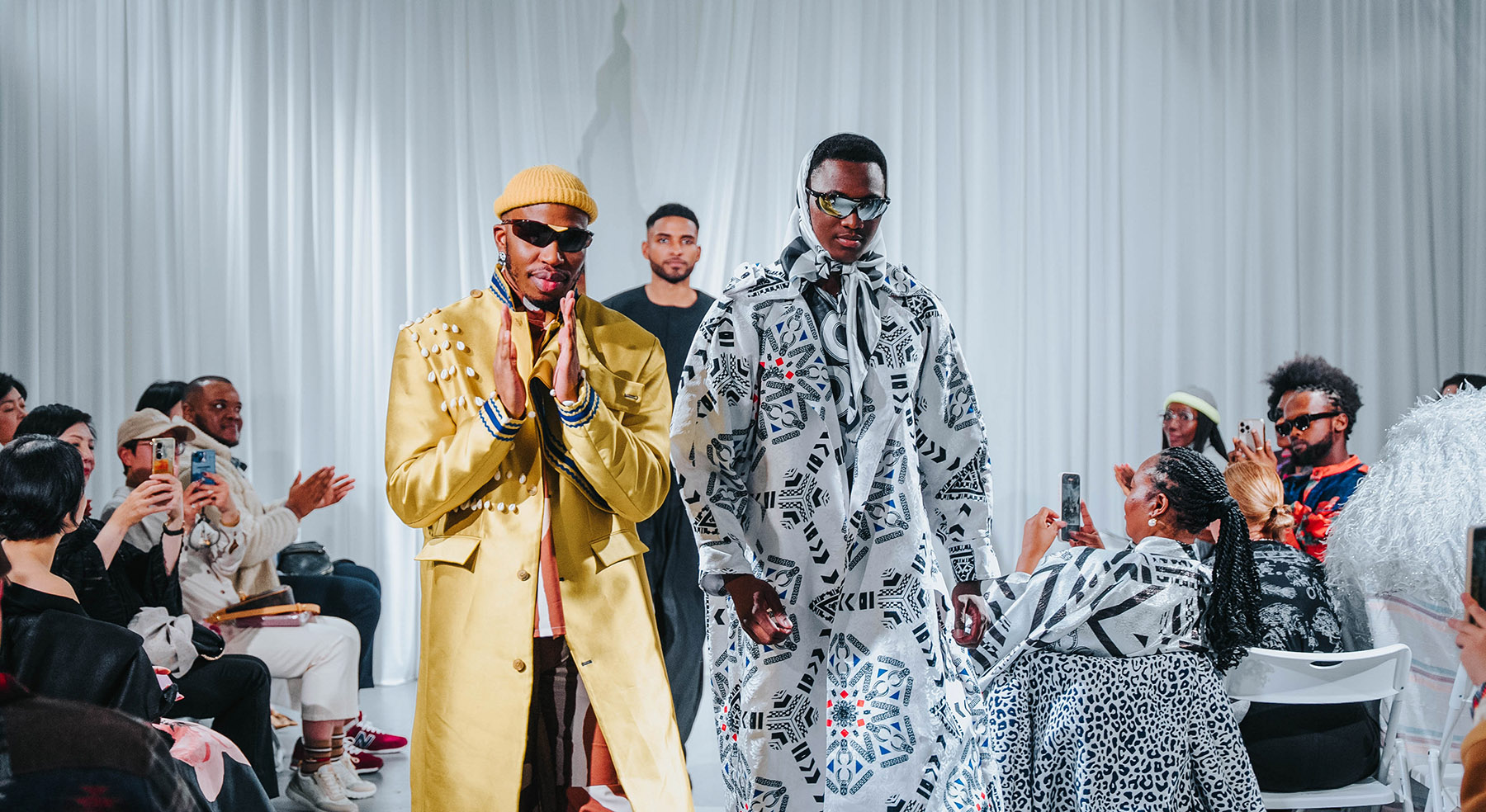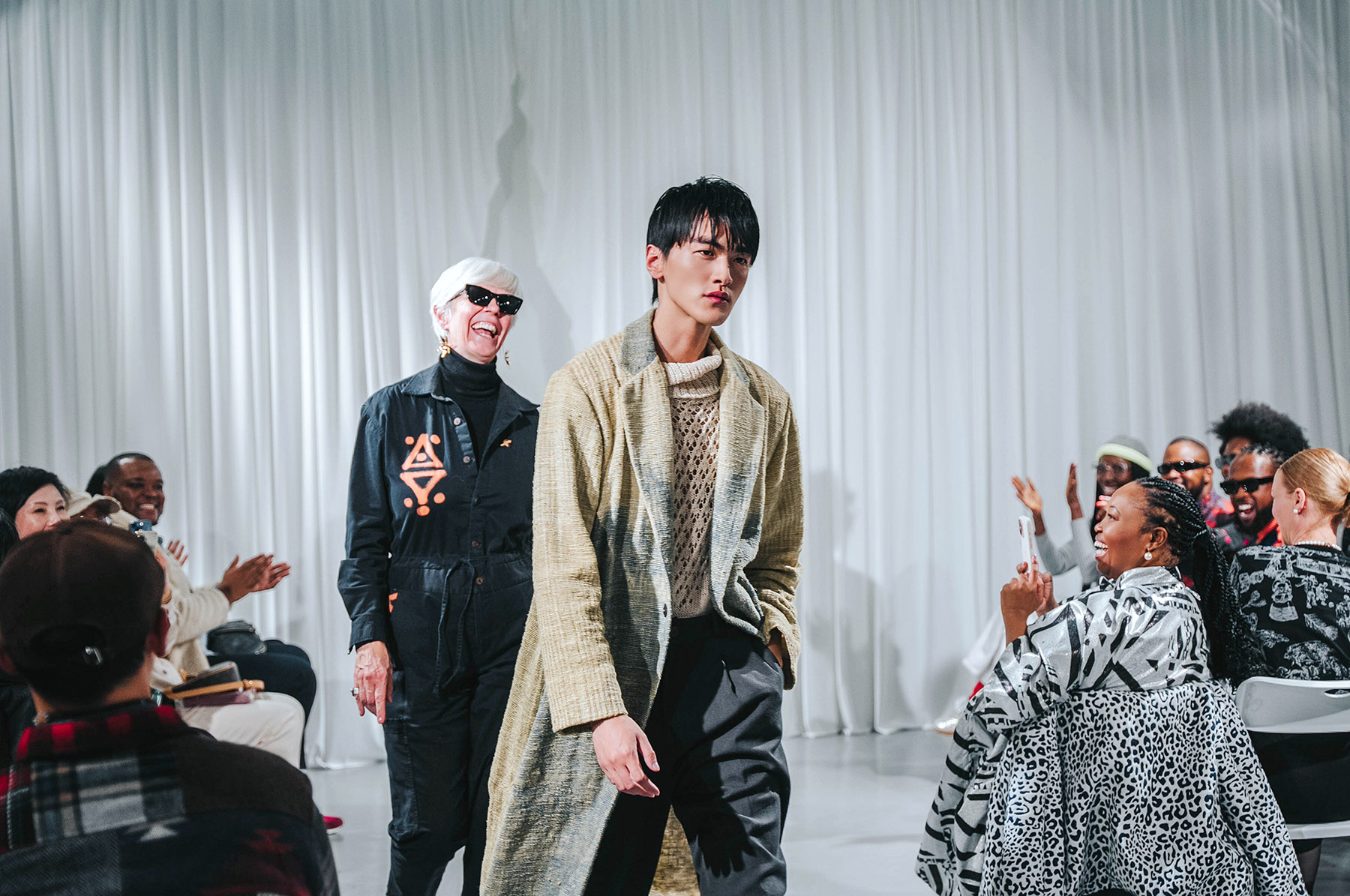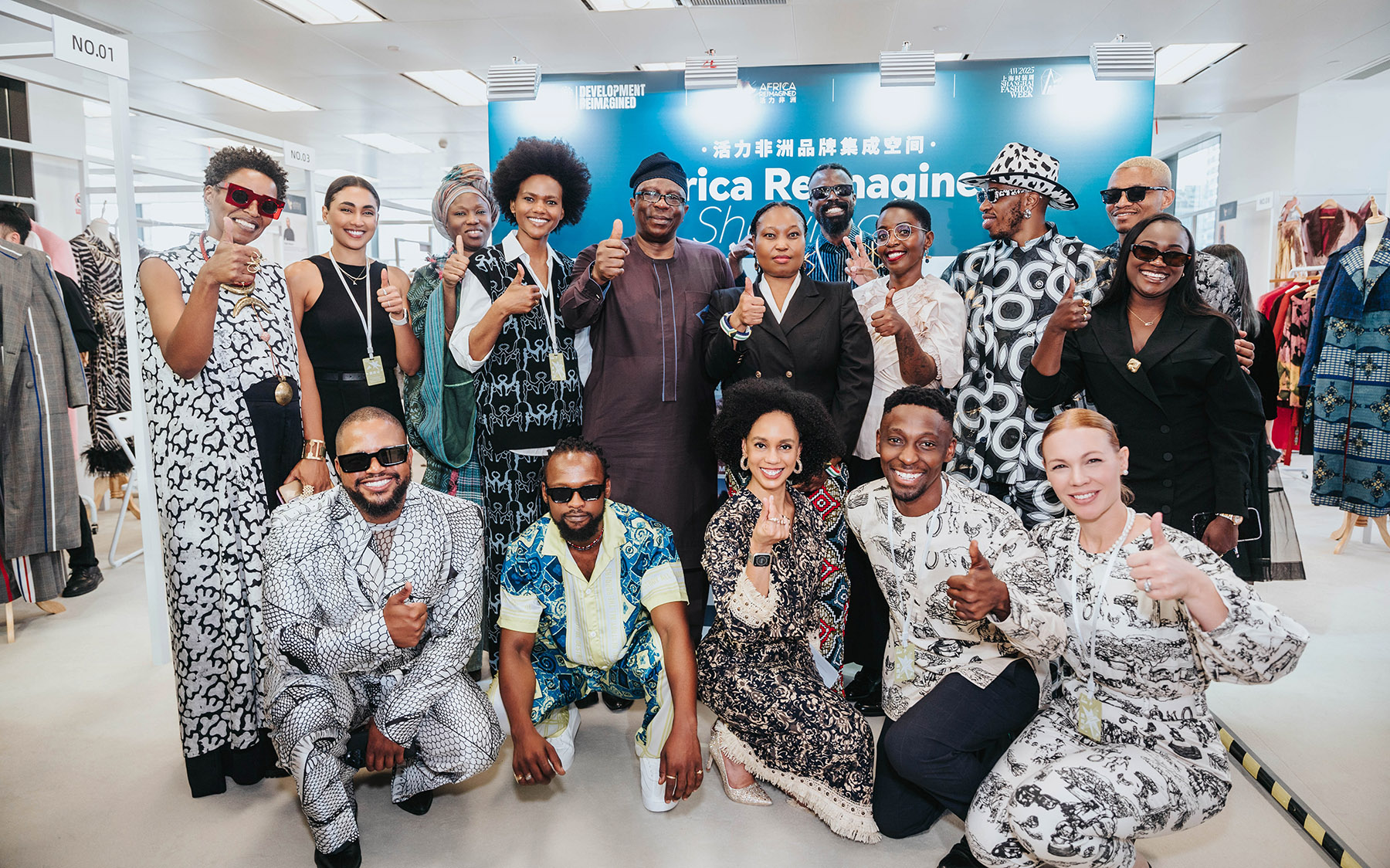Designers showcase their talent, proving the continent has its place in luxury goods, global trade and cultural exchange, He Qi reports.

Amid the vibrant energy of AW2025 Shanghai Fashion Week's MODE exhibition, Ann McCreath, founder of Kenya's KikoRomeo, meticulously arranged her booth. The brand, founded in 1996 and celebrated for its African identity and eco-conscious designs, was bustling as buyers and enthusiasts flocked to explore her collection.
Known for its exquisite bead-work, sustainable fibers and unique weaving techniques, KikoRomeo participated in Paris Fashion Week and emerged as a rising force in Kenya's fashion scene. Shanghai Fashion Week was McCreath's first time showcasing in China.
READ MORE: Trade week paints a positive outlook
"We've been curious about China because in Kenya there are so many Chinese companies developing things and constructing buildings, but we haven't had enough cultural exchange," says McCreath.
McCreath's fascination with China stems from her desire to connect with a market that has long been a driving force in global trade.
Observing Shanghai's fashion-savvy consumers, she notes: "When I look at consumers, everyone's got their own style. Although you have mass-market manufactured clothing, how people wear clothing shows their uniqueness."
For the Shanghai event, her goal is not only to link a bridge between Africa's rich cultural heritage and Asia's dynamic fashion market but also to showcase the value of African brands to the world through the biennial fashion week held from March 25 to April 1.
"We live that vision daily but when we go into other markets, they're often unaware of how Africa has changed and developed. We don't want to just export raw materials; we want to make them into value-added goods that can be appreciated globally," she expresses.
McCreath's participation is part of Africa Reimagined, a flagship project by Development Reimagined, an international development consultancy headquartered in Beijing. Africa Reimagined is a fashion showcase and a strategic platform driving industrial growth, job creation, and deeper trade relations between Africa, Asia and the global fashion ecosystem, says Hannah Wanjie Ryder, CEO of Development Reimagined.
"African luxury fashion deserves a space on the global stage. Shanghai Fashion Week presents a unique opportunity to turn that vision into reality," says Ryder. "This initiative is about building lasting commercial relationships, unlocking new growth opportunities in Asia, and reaching a worldwide audience eager for fresh perspectives on luxury."


At AW25, Africa Reimagined brought 22 leading designers from 12 African countries, each showcasing how African fashion blends culture, heritage and sustainability with modern luxury. The program included a trade show, panel discussions, and a runway show, aimed at expanding market access and securing commercial opportunities.
"By participating in Shanghai Fashion Week, African brands are not just gaining exposure, they are positioning themselves as key players in the global fashion industry, expressing their willingness to diversify beyond their home markets to fashion capitals such as Paris and New York, and to expand into new markets across Asia and beyond," adds Ryder.
Among the participants was South African designer Amza Niyonzima, founder of Masa Mara, which weaves Rwandan symbolism into futuristic streetwear.
"We are here, we are the brave ones, we are the ones that believe our spirits should be shared throughout the world," declares Niyonzima, whose brand was awarded the 2017 NNUA Young African Fashion Innovative Award. "It's a great joy to be in Shanghai. It's our first time coming to China. We see so many similarities between African and Chinese cultures," Niyonzima adds.
South African couturier David Tlale, whose avant-garde designs redefine African elegance, points out that African craftsmanship is exceptional, and the world is finally recognizing its influence in the luxury fashion industry. "Shanghai Fashion Week provides the perfect stage for African designers to prove that African design is not just relevant, but is essential to the future of global luxury fashion."

For Ryder, fashion is more than just clothing: It is a gateway to understanding different cultures and a hope to create more opportunities.
With two decades of experience in international development, Ryder highlights the program's role in fostering trade over aid. "China has that same perspective; it understands that development is rooted in investment and mutual growth," she states, adding that by entering China, African brands create jobs at home, particularly for women and girls, while diversifying global supply chains.
"This year marks the 25th anniversary of the Forum on China-Africa Cooperation, and fashion helps make that connection tangible," she says. "Through this initiative, we aim to promote trade, investment, and meaningful engagement for African people."
ALSO READ: Straining at the leash for high fashion
Africa Reimagined's momentum extends beyond the event. Planners are already eyeing return trips in October 2025 and March 2026, with e-commerce partnerships and regional pop-ups in the pipeline.
For Niyonzima, the journey has just begun. "We've spoken to suppliers and buyers about collaborations. Shanghai isn't our last stop. It's our launchpad."
Contact the writer at heqi@chinadaily.com.cn


